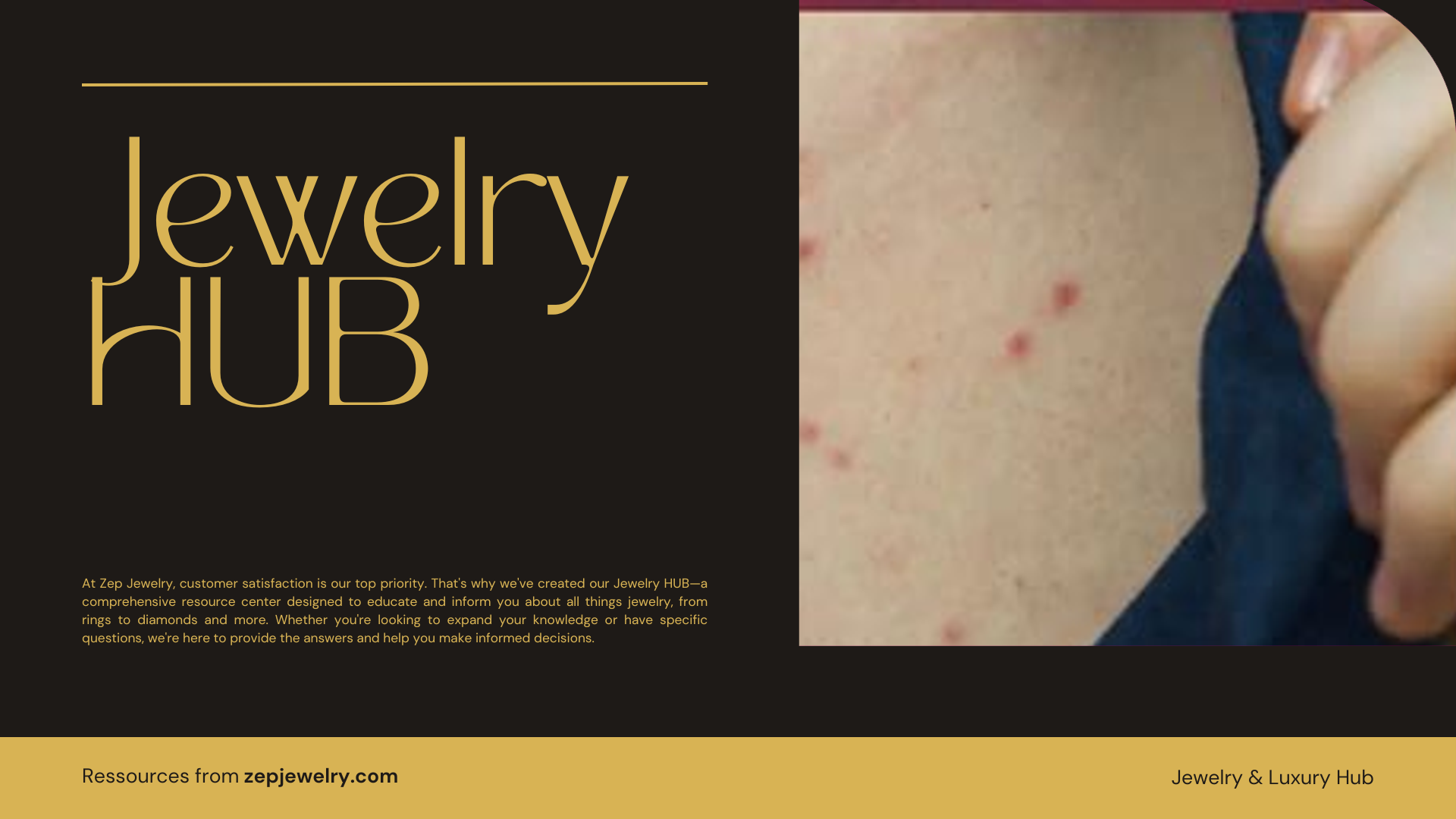Can your favorite statement necklace be secretly plotting against your skin? While jewelry often feels like the perfect finishing touch to any outfit, it can surprisingly throw a wrench in your complexion by causing acne breakouts. The interplay of metal allergies, irritating friction, and the unlikely build-up of bacteria means that your cherished pieces could be more trouble than they’re worth, particularly for sensitive areas. As we delve deeper into the relationship between jewelry and acne, you might reconsider what truly shines in your beauty routine.
Can jewelry really cause acne breakouts?
Can jewelry really cause acne breakouts?
Yes, jewelry can indeed contribute to acne breakouts, especially when it comes to certain types that may irritate the skin, like earrings. This irritation often arises from a combination of factors, including metal allergies, friction caused by the jewelry’s movement, and the accumulation of bacteria.
For instance, when earrings are worn continuously, they can trap dirt and oils from the skin, allowing bacteria to thrive. This bacteria may transfer from the earrings to the skin, which can result in infections or inflamed pores, presenting as acne. It’s worth noting that nickel, a common metal used in jewelry, can lead to allergic reactions that exacerbate skin irritation, sometimes causing rashes or breakouts. An allergic response may lead to heightened sensitivity in the area, making it more susceptible to acne.
Moreover, jewelry that tightly conforms to the skin, like chokers or certain types of necklaces, can create friction known as acne mechanica. This can cause physical irritation to the skin, leading to blocked pores and subsequent breakouts.
In some cases, fresh piercings are particularly vulnerable to such skin reactions, as they expose the skin to unhealed wounds. For those experiencing persistent skin issues related to jewelry, it is advisable to opt for hypoallergenic materials, like surgical stainless steel or 14k gold, and to follow good hygiene practices, such as cleaning both the jewelry and the skin regularly. This simple step can help mitigate the risk of breakouts while still allowing you to enjoy your favorite accessories.
Understanding these connections can empower individuals to identify potential culprits behind their skin issues and take preventative measures, allowing them to wear jewelry without compromising their skin’s health.
What role does a nickel allergy play in skin reactions to jewelry?
What role does a nickel allergy play in skin reactions to jewelry?
Nickel allergies play a significant role in the skin reactions that many people experience when wearing jewelry, particularly in the form of allergic contact dermatitis. This condition manifests as a range of distressing symptoms, including rashes, itching, and redness, specifically appearing on parts of the skin that come into contact with nickel-containing jewelry. It’s estimated that approximately 10% of the population suffers from nickel allergies, making it a common concern.
Alloying metals such as nickel into jewelry is often necessary since pure gold and silver are too soft for many styles. As a result, pieces made from lower-grade materials can provoke allergic reactions among sensitive individuals. When jewelry containing nickel is worn, the metal can react with moisture from the skin, such as sweat, which exacerbates the irritation and leads to uncomfortable skin reactions.
Furthermore, individuals with nickel sensitivities may find that these reactions are not limited to localized rashes; they might also experience acne-like breakouts around the affected areas, particularly around the ears, neck, and wrists. This occurrence is sometimes referred to as “acne mechanica,” as the friction from the jewelry can aggravate existing skin conditions. Hence, understanding and identifying a nickel allergy is crucial not just for avoiding reactions but also for maintaining healthy skin.
To minimize the risk of allergic reactions, individuals should consider opting for jewelry made from hypoallergenic materials, such as surgical stainless steel, titanium, or nickel-free alloys. Keeping jewelry clean and minimizing contact with moisture can also aid in reducing irritation. In cases of severe reactions, consulting with a dermatologist for appropriate treatment options, including ointments or creams, may be beneficial.
How can newly pierced ears affect acne or skin health?
Newly pierced ears are particularly vulnerable to skin issues, including acne. Fresh piercings often face the risk of infection, especially if the jewelry is made from cheaper metals that may contain nickel. The body’s immune response to infection or irritation can contribute to localized breakouts or exacerbated acne, especially if the skin is not kept clean and free from dirt or bacteria that may linger on the jewelry.
What preventive measures can reduce the risk of acne from jewelry?
To mitigate the risk of acne and skin reactions from jewelry, consider these preventive measures: opt for nickel-free jewelry options, such as surgical stainless steel or pure gold; remove jewelry before showering or when washing hands to prevent moisture from loosening the skin’s protective oils; and regularly clean jewelry with appropriate solutions to minimize bacteria build-up. If you’re prone to skin reactions, also allow piercings to heal completely before wearing jewelry made from reactive materials.
Could the materials in jewelry affect hormonal imbalances and contribute to acne?
While there is anecdotal evidence suggesting that certain metal allergies, such as nickel, may influence hormonal imbalances leading to acne, scientific studies specifically linking jewelry metals to hormonal changes are limited. Nonetheless, individuals should be cautious as unresolved allergies or skin irritations can stress the body, possibly affecting hormonal levels and exacerbating skin conditions like acne. It’s important to monitor your skin’s reaction to various metals and consult a dermatologist if you’re concerned.
Is it possible for jewelry-associated skin irritation to evolve into acne?
Yes, skin irritation caused by jewelry can evolve into acne due to a variety of factors. When jewelry causes friction or retains moisture against the skin, it can lead to clogged pores and an environment conducive to breakouts. Moreover, if allergens cause inflammation, this can disrupt normal skin function, leading to acne flare-ups. It’s essential to be vigilant about skin care around jewelry and recognize changes in your skin’s condition, adjusting your jewelry choices accordingly.
